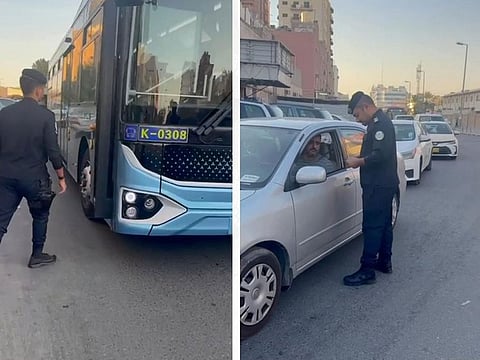More arrests as Kuwait widens crackdown on illegals
Authorities pledge to keep targeting residency law violators after amnesty ends

Cairo: Kuwait has expanded its high-profile crackdown on foreign violators of its residency law, with security agencies conducting raids in two more areas of the country.
Large numbers of violators were apprehended after police sealed off Bnaid Al Gar, a suburb of Kuwait City, according to Kuwaiti newspapers.
A statement from the office of the city's Governor, Abdullah Salem, noted that he had accompanied senior security officials during the operation. "This surprise inspection campaign is part of the many security campaigns carried out in all governorates of the country," said the governor.
A similar raid was conducted in Al Farwaniya Governorate, south of Kuwait City, where several violators were arrested, the Interior Ministry reported.
Legal proceedings will be initiated against the violators, and they will be deported from Kuwait, the ministry added, though specific figures were not provided.
The ministry emphasized that the crackdown will continue to target expatriates who failed to take advantage of a three-month grace period to rectify their residency status.
Kuwait has a total population of 4.8 million, including around 3.3 million foreigners.
The amnesty, which began on March 17, allowed illegal expatriates to adjust their residency status or leave the country voluntarily. The deadline ended on June 30. Irregular expatriates without passports were able to leave Kuwait without paying a fine and could re-enter the country. Those without travel documents were allowed to obtain new ones for departure.
There are no official figures on how many expatriates utilized the grace period. Since the deadline, Kuwaiti authorities have launched a large-scale security campaign to apprehend unlawful residents who did not benefit from the amnesty. Deportees will also be banned from re-entering Kuwait for life and other GCC countries for five years.


